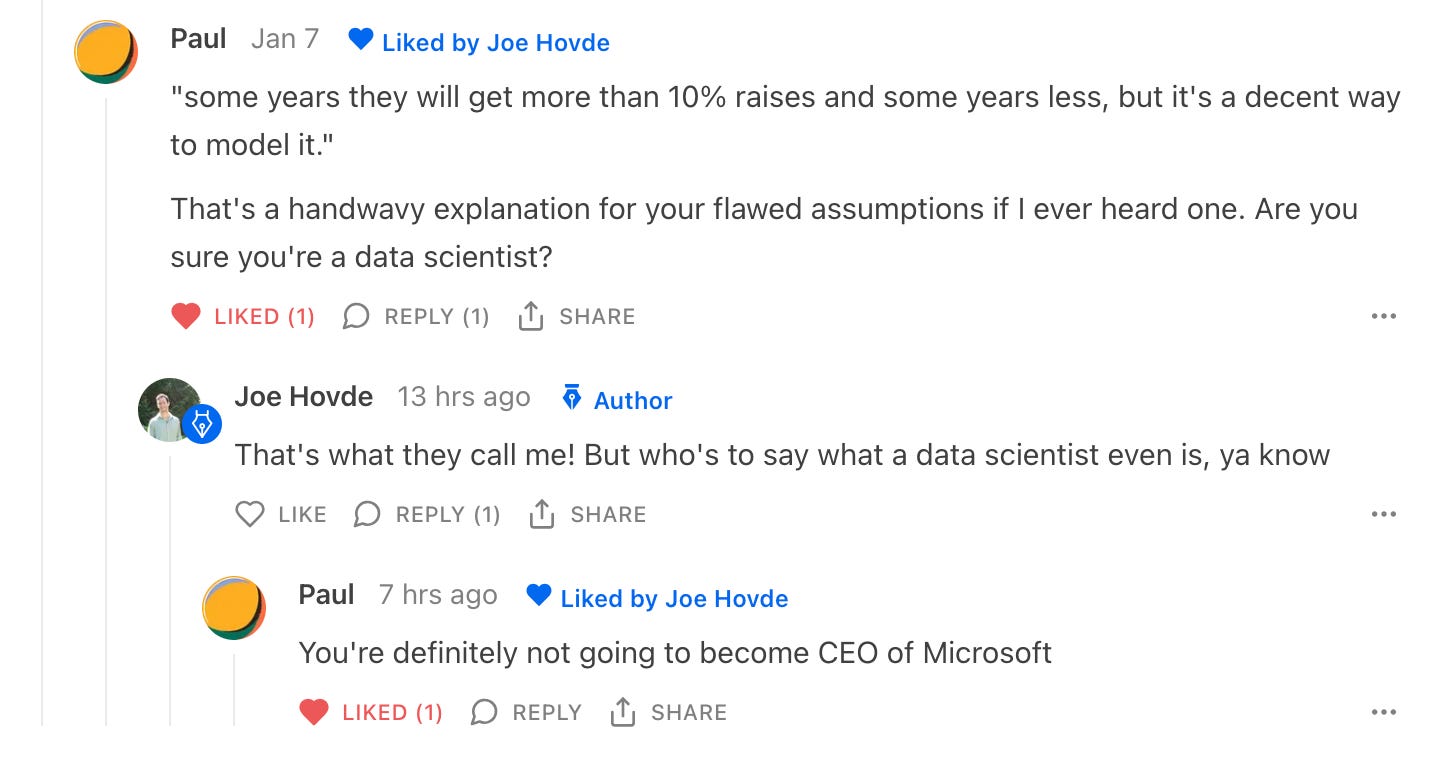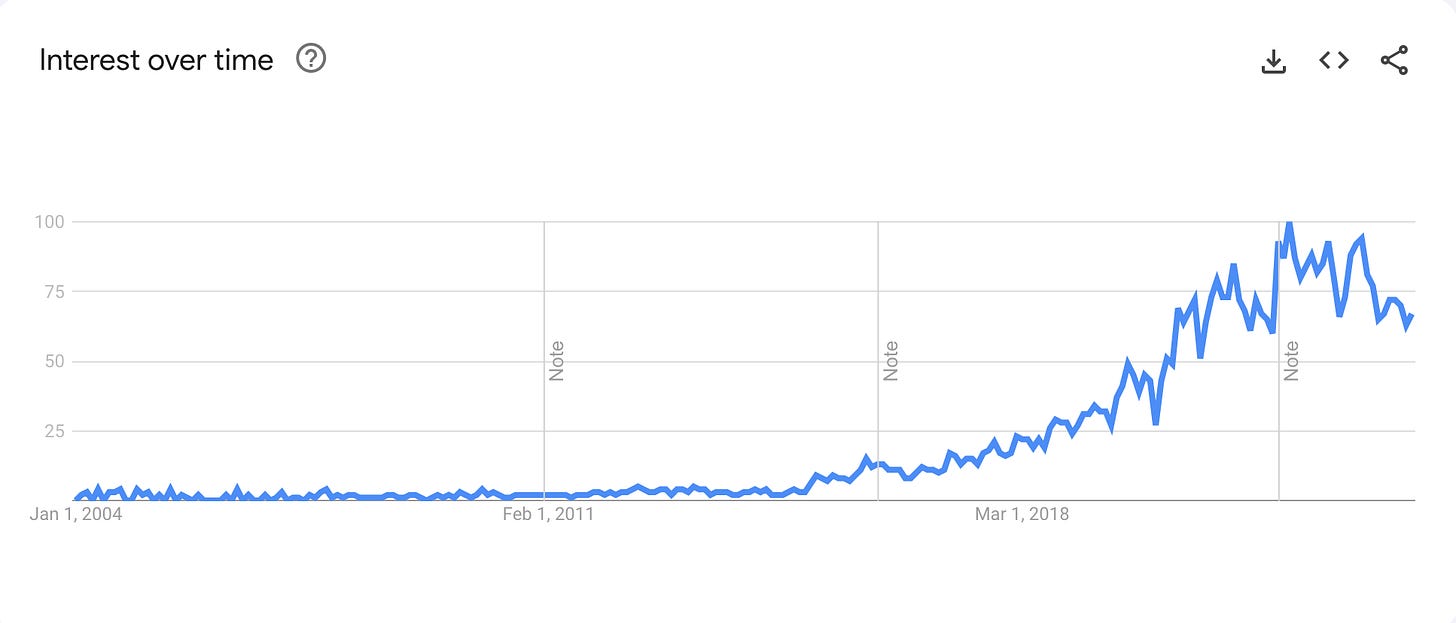I wrote about modeling the rationality of job stacking the other day and posted it to a subreddit called “overemployed” and it irritated some people who think I was wrongly dismissive of the idea. A couple of readers commented on the post including Paul above: “you call yourself a data scientist?”
I found myself reacting to the critical feedback with defensiveness but also giddiness: it is so rare that I get feedback on my work that is remotely close to what I would consider “mean” that it feels novel and exciting.
Digging deeper into that, it is liberating to see communication that is so obviously not meant to spare my feelings because it shows there’s nothing else to be afraid of behind here. Sharing work with others makes me feel vulnerable, whether that is in my job or on the internet or wherever else. But I find that the feeling of vulnerability is a lot larger than it needs to be, and rare instances like this where someone is blatantly critical make that obvious. Is that all there is? That’s what you’ve been afraid of?
On the other hand, I have never experienced anyone being nearly so coarsely critical as this in my actual jobs. And to be clear, I am thankful for that! It makes my life much more enjoyable. But there is something odd about it. Growing up, I always had the cultural trope in mind of a boss who yells at you if you turn in a report late or if you don’t know a sales figure in a meeting. I have not found this in the slightest, anyplace I’ve worked.
No one is ever mean to me at work!
I know this depends a lot on the culture of the industry and function, and in my case I expect that tech’s culture leads to a lot less of this, and data teams tend to be pretty mellow. So certainly my experience is not reflective of everyone. But I can certainly say that at the jobs I’ve had, I’ve never seen anyone yelled at, and I can’t even recall seeing anything directly that I’d characterize as “aggressively critical” or “mean” to someone’s face.
Again, I think this is mostly good. But there is some freedom in knowing for sure that someone is not coddling your feelings and is telling you exactly where you stand. Paul, the annoyed commenter, does not think I’m a good data scientist, nor does he think I’ll be CEO of Microsoft! I know this for sure; there isn’t any ambiguity for me to sort out.
I expect the prevalence of imposter syndrome (search trend below) has to do with this phenomenon: it is pretty hard to get critical feedback at work, so you’re left to wonder whether you actually deserve to be doing what you’re doing.
I also think it is healthy to develop some way of moving through the world without an ambient fear of people being mean to you, and part of doing this involves exposure to people being mean to you.
I’m glad that I’ve found this little way to occasionally get people to be directly critical of me, even if it may mean facing the harsh reality that I won’t be CEO of Microsoft.






You should check out The Fearless Organization by Amy Edmondson or Radical Candor by Kim Scott. Both of those frameworks talk about the value of teams in which people feel empowered to confront and call each other out (in the right way).
Interesting read. You're in school for 16 years with clear 0/100 ratings. A's, B's, F's. And then, all the sudden every work assignment you submit the only feedback you get is "looks good!" or "can you change this one small thing?"
We go from a very granular, predictive, and quantitative feedback system to a non-transparent (and sometimes passive aggressive) corporate environment in the blink of an eye. No wonder it seems like everyone either thinks they are A) an impostor or B) Don Draper
Bring back the critical feedback!! I want to see when I get an F